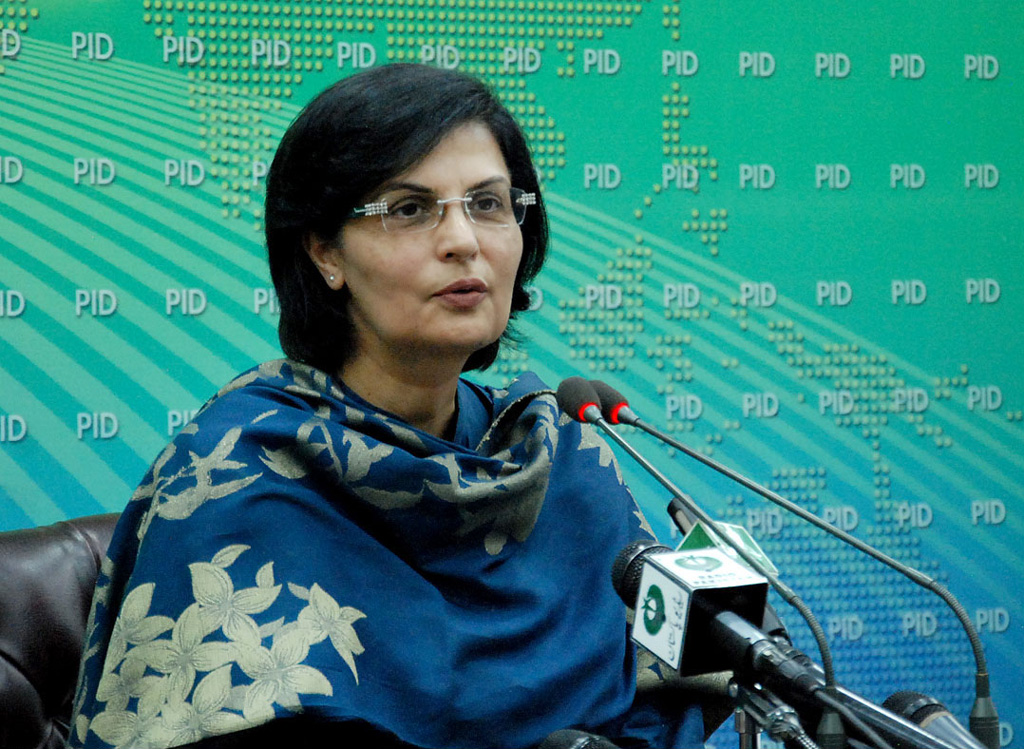Funds for social protection to be doubled in next budget: Sania Nishtar

ISLAMABAD: Special Assistant to Prime Minister on social protection and poverty alleviation Dr. Sania Nishtar Sunday said the amount for social protection would be doubled in the upcoming budget which portrayed the vision of Prime Minister Imran Khan to bring the marginalized sector into mainstream.
Highlighting the key features of Prime Minister ‘Ehsaas program’ at a press conference here, she said the program had been chalked out keeping in view the principles of state of Madinah, adding that the objective of which was to reduce inequality, invest in people, and lift lagging districts.
She said “Ehsaas” is a comprehensive and multifaceted program with 115 policies under four pillars including, addressing elite capture and making the government system work to create equality, safety nets for disadvantaged segments of the population, jobs and livelihoods and human capital development.
With the creation of Ministry of Social Protection and Poverty Alleviation Coordination, she said all the departments including Benazir Income Support Program (BISP), Pakistan Bait-ul-Mal, Zakaat, Pakistan Poverty Alleviation Fund, Trust for Voluntary Organizations would work under umbrella of a ministry to address the issues in efficient way.
The one-window social protection operation would assist beneficiaries of social protection besides reducing duplication, she maintained.
Nishtar said a new policy was being formulated to guide the use of development expenditure by parliamentarians to promote transparency, independent oversight and accountability.
A share would be earmarked for those below a certain poverty line while allocating kiosks, tea shops, newspaper stands, shoe polishing booths on government-owned land or in government-owned hospitals, parks, and railway stations.
Similarly while auctioning shops in Town and Tehsil or in Market Committees same procedure would be adopted.
She said registration of slums residents would be made mandatory to facilitate their transparent inclusion in case of commercialization of the area.
Giving details about the second pillar she said multiple validations of the National Socioeconomic Registry through follow-up review surveys and use of big data analytic were in process to correctly and precisely identify the real deserving.
Two new social protection programs were being introduced Kifalat and Tahafuz.
Under the Kifalat program, stipends would be disbursed among seven million women on monthly basis enabling them to undertake their own business ventures and help their families extricate from poverty.
She said poor women would be given mobile phones and bank accounts as part of increasing financial literacy and it would be fully operational by October.
She said Tahafuz was the precision safety net of the government of Pakistan, aimed at people who suffer unexpected financial problems in life.
Assistance to poor widows would also be given who don’t have any earning children through Tahafaz.
Partnership with NGOs would upscale successful programs for orphans, street children, seasonal migrants, transgender, victims of child and bonded labor and daily wage workers.
The establishment of shelter homes (Panahgahs) in several major cities were also the part of this program , she said.
A welfare and pension scheme for the informal sector were being launched as a result of the recommendations of the Labor expert group Welfare of workers abroad.
A policy was also being formulated to increase the role and number of Community Welfare Attaches besides involving well reputed expatriate Pakistanis in it.
Giving details about the third pillar of Ehsas Program, she said Human capital development is a significant contributor to the wealth of a nation adding that investments in early years would tackle malnutrition, preschool or early education, protecting children from harm, ensuring access to quality education, skills and jobs, long-term commitment to Universal Health Coverage, and measures for empowering women and girls.
In fourth pillar she said employment generation was a major objective of the broader economic reform agenda,a certain set of employment opportunities were included in the Ehsaas framework to promote jobs and livelihoods, despite current limitations.
The Special Assistant said Labor laws were in pipeline to make recommendations for formalizing tenancy farming system.
Regarding BISP, she said reforms would be brought in BISP to ensure maximum transparency. A survey was being carried out and a new payment mechanism would be introduced by October, she said.
In addition, she said interest free loans would be given to the skilled persons under PM loan programme.





















Comments
Comments are closed.